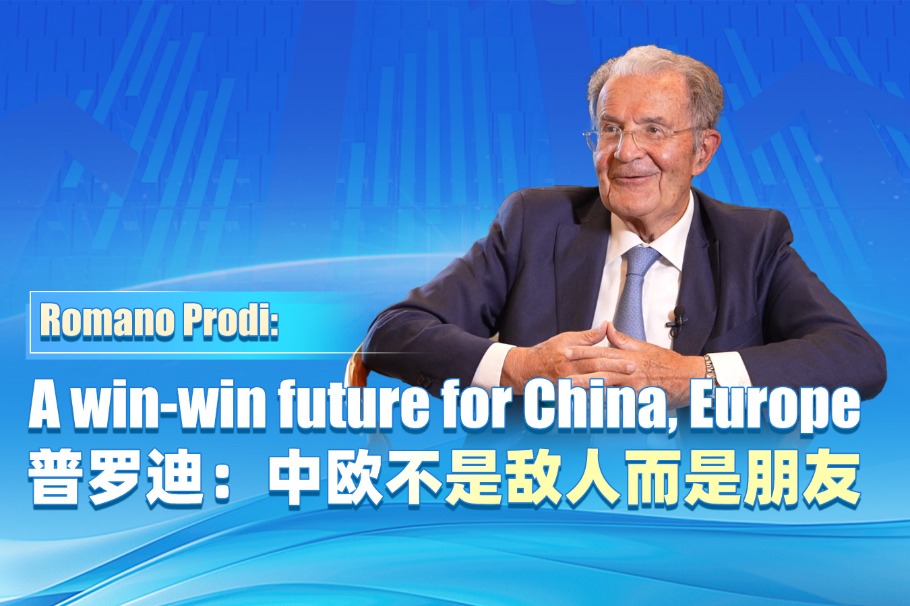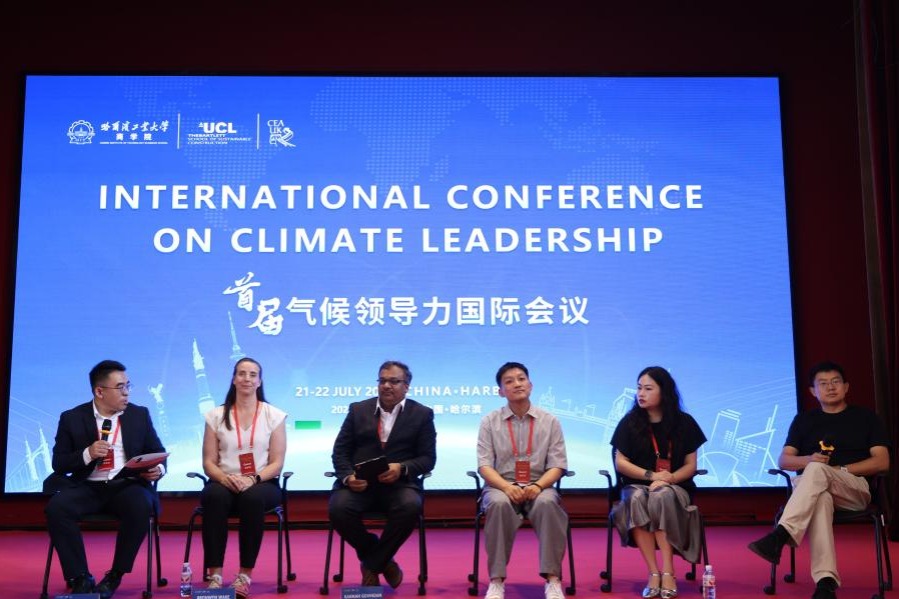Bullying tariffs will scar US too

The simplistic slogan "America First" has a long and storied, politically charged history in the United States. But its enduring appeal has found fertile ground amid the festering disillusionment with the American Dream, as wage stagnation, job insecurity and automation have eroded trust in traditional pathways to personal prosperity.
While the US leader's political ideology has been shaped by a variety of influences, including his own experiences in business and entertainment, the influence of figures such as the paleoconservative Pat Buchanan, who campaigned for the presidency on an "America First" platform at the turn of the century, cannot be discounted.
Buchanan's nationalist, protectionist, and anti-globalist views have strongly resonated with the US president, who has tipped his hat to their shaping of his own political agenda.
Timing is everything, of course. And the US leader rebranded Buchanan's message at a time when the US economy was reeling from the impact of a new wave of technology and the cost of the US' ignominious military adventurism.
And with the limitations of US military power projection evident, the US leader — whose political brand prioritizes economic nationalism as the salve for popular and personalized grievance at the country's perceived loss of status — has enthusiastically embraced the weaponization of tariffs as the means to "Make America Great Again", prioritizing national identity and sovereignty over the rules-based trade system the US was a primary architect of.
Thus the US president has, in his bombastic way, designated April 2 as "Liberation Day" — the day when "reciprocal tariffs" on countries that impose duties on US goods are introduced. But the aggressive move will not free the US from its reliance on foreign goods as he predicts. Rather, it will reinforce the cage the US has erected around its economy.
The reciprocal tariffs come after similar recent announcements of additional 25 percent taxes on auto imports, punitive levies against Chinese, Canadian and Mexican imports, and steep new tariffs on steel and aluminum imports. As of the time of writing, it remains unclear how the latest tariff attack will be implemented. But economists have warned the tariffs could plunge the US into a recession because of inflationary pressures, declining consumer confidence and volatile stock markets.
While the US president lauds tariffs as a "beautiful" panacea for all the US' ills, their downsides, which he dismisses, are not negligible. The US leader has argued that his tariffs will raise money for the federal government, claiming "you're going to see billions of dollars, even trillions of dollars coming into our country very soon in the form of tariffs". But many economists have said his estimates are overblown and the tariffs are "a hidden tax on Americans".
And while the White House insists tariffs will help to revitalize domestic industries and bring back manufacturing, it remains to be seen how effective the tactic will be in exerting pressure on companies to move production to the US to avoid hefty tariffs on foreign imports. Not to mention whether the US is ready to accept the environmental toll that will have to be paid for large-scale, heavy manufacturing.
The indiscriminate use of tariffs also risks exacerbating existing vulnerabilities. Many US companies have already reported lower profits as a result of weaker demand, slower deliveries and tariff-induced cost pressures. The Institute for Supply Management's manufacturing index fell 1.3 points last month to 49, lower than expected and below the 50 mark that signals contraction. "Prices growth accelerated due to tariffs, causing new order placement backlogs, supplier delivery slowdowns and manufacturing inventory growth," said Timothy Fiore, chair of ISM's Manufacturing Business Survey Committee.
Some may argue that the US administration is just using tariffs as a transactional tool to maximize the US' interests in dealmaking. Yet the move will inflict long-term damage on global faith in the US as a responsible power, especially when the world sees how readily the US president runs roughshod over World Trade Organization rules and the trade agreements the US has signed with other countries.
China has repeatedly warned that there is no winner in a trade war. The Foreign Ministry has made clear that it will continue to take measures to firmly safeguard its legitimate rights and interests as necessary, while calling on the US administration to resolve the trade issues through equal consultations on the basis of mutual respect. At a time when the global economy is continuing to rapidly evolve, finding a balance between protecting domestic interests and engaging in international trade cooperation remains a paramount challenge for all countries.
Today's Top News
- What's behind Nvidia's charm offensive?
- Xi urges China and EU to strengthen bilateral relationship for a brighter future
- China's basic medical insurance covers 95% of population
- Summit seen as opportunity to strengthen ties
- China leads boldly in global energy transition
- NHS doctors in England to strike over pay






























